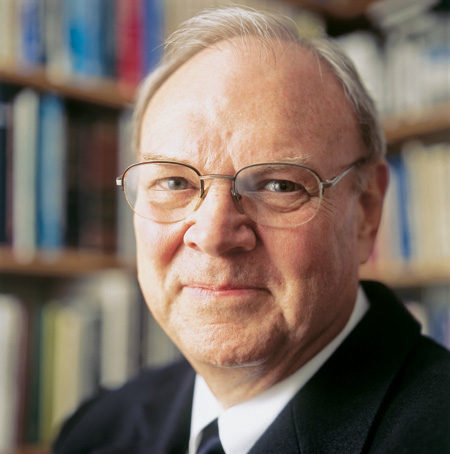A successful Wall Street investment banker encourages women to dream big.
While it isn’t unusual for a wife to be employed while her husband attends college, for one BYU alumna that plan became an unlikely pathway, leading from secretary to Wall Street investment banker. She has now written a book, Dream, Dare, Do, about how remarkable things happen when you have the courage to dream.
Whitney Wilson Johnson’s (BA ’89) goal is to help people—especially women—identify and achieve their dreams. In her book she uses herself as an example and provides guidelines based on disruptive innovation, a theory developed by Harvard professor Clayton M. Christensen (BA ’75). Disruptive innovation describes new ideas that eventually change, or disrupt, the status quo. Typically applied to services, products, companies, or countries, the theory can also be applied to people.
Johnson first disrupted herself on Wall Street. She and her husband, Roger D. Johnson (BS ’87, MS ’90), had moved to New York City for him to attend graduate school, and, armed with a music degree and few technical skills or relevant experience, Johnson accepted a Wall Street secretarial position—the best job she could find. As she got her footing, she observed the financial advisers and found herself saying, “Look, I’m as smart as these people.” She decided to begin taking financial classes at night.
Johnson eventually moved from secretary to investment banking analyst to equity analyst. She lauds a boss who was willing to encourage and promote her. “He helped me cross what is often an unbridgeable divide,” she says. “Becoming an equity analyst was a real career maker for me because it allowed me to build on technical skills I had developed. I built financial models and found investors and connected investors with CEOs.”
At first Johnson was not aware she was disrupting herself because her change was discovery-driven and occurred over 15 years of what she calls “very, very hard work.”
“I only knew I wanted a better life for myself than I had believed was possible,” she says. “I was beginning to disrupt my perception of myself.” Only after learning frameworks and theories did she realize she was engaged in disruptive innovation.
The second time Johnson disrupted herself was in 2005, when she left Wall Street and halted her graduate school studies to spend more time learning how to be a mother to her two children. “As in all our major decisions, my husband and I made it a matter of prayer. That was an important disruption for me,” she says, “and I’m sure I will disrupt myself again in the future.”
Johnson met many capable, accomplished mothers and assumed most women were following paths similar to hers. She was surprised, then, to discover that many women were not daring to dream at all, and more troubling, she would hear them say, “I’m not sure it’s my privilege to dream.”
“This saddened me,” she says, and the discovery prompted her to start the Dare to Dream blog in 2006 and publish Dare, Dream, Do in 2012. In the book, she describes a three-step model for personal advancement and happiness:
• Dare: take a risk and consider disrupting yourself
• Dream: envision possibilities for your life
• Do: make your dreams your reality
The book is filled with stories of women who took stock of their dreams and disrupted their lives in positive ways.
In an endorsement for the book, Clayton Christensen—with whom Johnson helped create Rose Park Advisors, an investment firm—suggested that readers “rethink the fundamentals of your life. Figure out what you were meant to do. Disrupt your status quo. That’s Whitney Johnson’s invitation (and challenge) to each of us. . . . I urge you to accept her invitation.”
Video:Whitney Johnson’s keynote address at Utah’s Women Tech Awards 2012 is available online as a BYUAlumni webcast. Visit magazine.byu.edu/WhitneyJohnson to watch the webcast as well as a video interview with Johnson.









